Introduction of Ring Die Pellet Machines to Angola
For farmers all across Angola, from the maize fields of Huambo to the busy poultry farms near Luanda, one challenge is universal: the high cost of quality animal feed.
Relying on imported feed is a tough game. The prices are unpredictable, and you can’t always be sure it will be available when you need it most. We understand the challenges of a tough supply chain. That’s why the idea of self-sufficiency is so powerful.
An on-farm feed pellet machine in Angola is the key to that independence. It’s a powerful tool that allows Angolan farmers to take control. You can use your own local crops to create fresh, nutritious feed for your livestock, locking in your costs and building a more resilient and profitable farm.

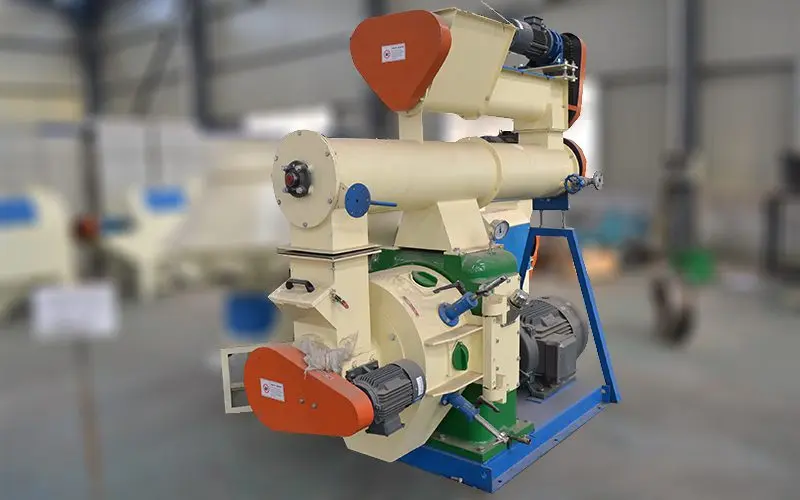
Why a Pellet Machine is a Smart Investment for an Angolan Farm
Investing in your own feed pellet machine in Angola is about more than just equipment; it’s a strategic move that delivers clear, practical advantages for your farm and community. Here are the key benefits you can expect.
Gain Independence from an Unpredictable Market
The number one benefit is control. You are no longer at the mercy of fluctuating prices or the uncertain supply of commercial feeds. We know how important a reliable supply chain is. By making your own feed, you create stability for your business in a challenging economy. You are in charge of your own supply.
Turn Local Angolan Crops into High-Quality Feed
This is where the real power lies. You can create excellent, nutritious feed using the crops that grow right here in Angola. You can build your formulas around locally available and often cheaper ingredients like maize (milho), cassava (mandioca), soybeans (soja), and sorghum (massambala). This reduces your costs and supports local agriculture.
Achieve Better Health and Growth for Your Livestock
Pelleting your feed ensures that every single bite is a complete, balanced meal. This consistent nutrition leads to better results for all of Angola’s vital livestock sectors, including poultry (galinhas), pigs (porcos), goats (cabras), and cattle. Healthier animals simply grow faster and are more productive.
Create a New Business in Your Own Community
Once your machine is meeting your own farm’s needs, it creates a new opportunity. You can start producing high-quality feed to sell to other local farmers in your area. This not only creates a new source of income for you but also provides your community with a valuable, locally-made product.
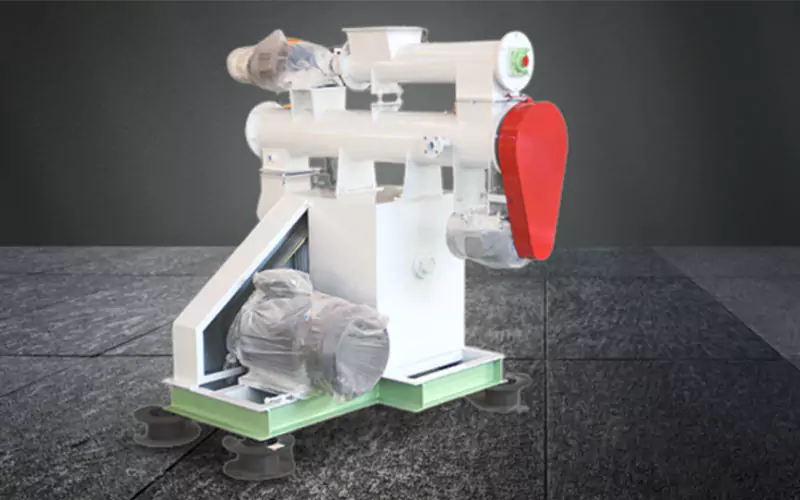
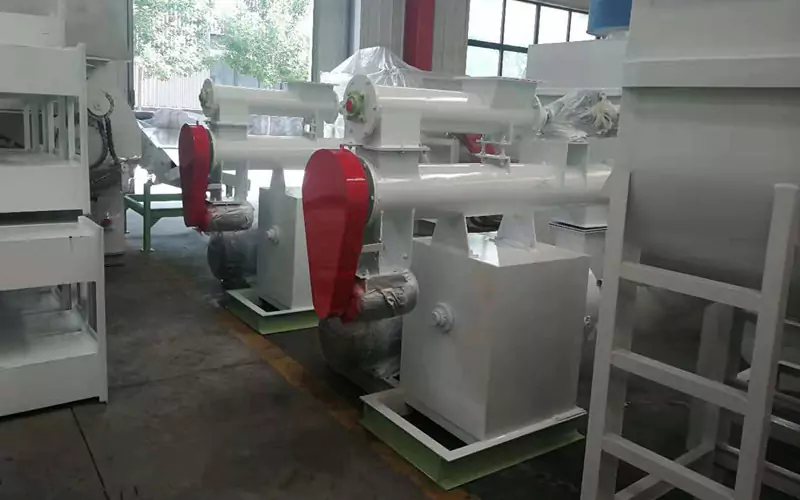
What Feeds Can You Make? For Angola’s Key Livestock
A good feed pellet machine in Angola is never a one-trick pony. Its real value lies in its versatility. We know the importance of equipment that can handle multiple jobs, and the same is true for a successful Angolan farm.
A single, reliable machine can become the heart of your entire livestock operation. You can produce high-energy poultry feed for your broilers and layers, which are so vital to our food supply. With a simple change of the die, you can then make a tough, nutritious pig feed for growing herds.
But it doesn’t stop there. That same machine can be used to create balanced goat and sheep feed, providing crucial nutrition for the smallstock that support so many rural families. It can even produce a high-fiber cattle feed to supplement grazing for the large herds in the southern provinces. It’s one machine, but it’s a solution for your entire farm.
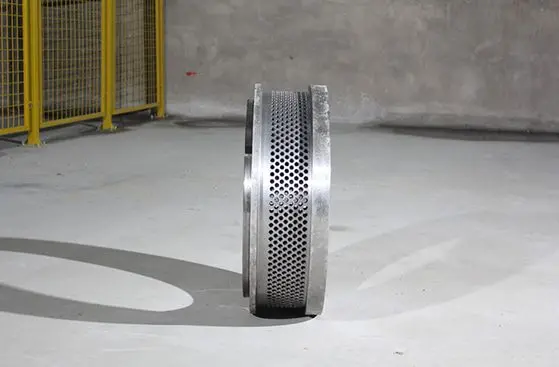
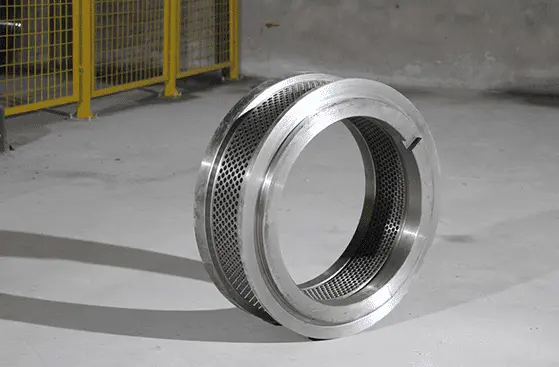
Choosing Your Power Source: A Critical Decision for Angolan Farms
Choosing the right feed pellet machine in Angola means matching the machine to your local reality. Nowhere is this more important than with the power supply. We know that you can’t run a business if you can’t count on your power. The same is true on a farm in Angola.
The Freedom of a Diesel or Petrol Engine
For most farmers in rural areas, a machine with its own diesel or petrol engine is the most practical and reliable choice. It gives you true independence. When the public electricity supply is a challenge, having your own engine means you can keep working without interruption. It allows you to produce feed on your own schedule, ensuring your livestock never miss a meal.
The Smart Choice for Tractor Owners: PTO Power
If you already own a tractor, a PTO-driven pellet mill is a very smart and cost-effective option. This type of machine uses your tractor’s powerful engine to run the pellet mill. It’s a versatile setup that gives you the freedom to make feed anywhere on your property, completely independent of the power grid.
The Simple Solution: Electric Power
If you are in an area with a more stable power supply, like near Luanda, then a simple electric flat die mill can be a great choice. They are often quieter and simpler to operate. This is also a good option for farmers who have a large, reliable generator to power their operations.
Finding Your Machine: A Guide to Sourcing a Reliable Supplier in Angola
Finding the right feed pellet machine in Angola is only half the battle; finding a good, reliable supplier is the other half. A great supplier is a long-term partner for your farm. Here’s a smart approach to finding one in Angola.
Start Where the Business Happens: Luanda and Huambo
Your search should begin in Angola’s major commercial hubs. Cities like Luanda and Huambo are the centers for importing and distributing nearly all agricultural machinery. Focus your initial search here, as this is where the most established dealers will be. A good first step is to visit the well-known agricultural supply companies in these cities and ask for their recommendations.
The Power of Local Knowledge: Farmer Networks
Don’t underestimate the power of word-of-mouth. Some of the best advice will come from other farmers. Use online searches to find local dealers, but then ask for real-world recommendations in Angolan farming groups on platforms like Facebook. A fellow farmer will give you the honest truth about a machine’s performance and the supplier’s reliability.
See the Machines for Yourself: Trade Fairs
Major trade events like the Feira Internacional de Luanda (FILDA) can be a great place to see different machines up close. It gives you a chance to meet with multiple suppliers in one place, compare the build quality of their equipment, and ask questions face-to-face.
A Critical Choice: Importing vs. Buying Locally
You will face a big decision: import a machine directly from an overseas manufacturer or buy from a local dealer in Angola. Importing might seem cheaper at first. We know that shipping and customs can be incredibly complex and expensive. You will also have no local support if something goes wrong. Paying a bit more to a local dealer in Luanda often buys you something priceless: on-the-ground technical support and someone who can help you get spare parts. For most farmers, this is the much safer and smarter long-term choice.
Asking the Right Questions Before You Buy
Before you make a final decision, take a moment to think like an investor. A good machine is a long-term partner for your farm. Here are the most important questions you need to answer for yourself.
What is Your Real Power Situation?
This is the number one question for any farmer in Angola. Be honest with yourself. Is the grid power where you are reliable enough to run an electric motor every day without interruptions? Or is a diesel engine or tractor-powered (PTO) machine the only practical way to run your business? Your power reality must guide your choice.
What Animals Are You Feeding, and How Many?
Next, get specific about your needs. The type of animals you are feeding will determine the pellet sizes you need to make. The size of your operation will determine the capacity, measured in kilograms per hour, that your machine must be able to produce. Match the machine to the real-world needs of your farm.
Look for a Machine That is Simple and Strong
We know that complex machines can be a nightmare to fix when you’re far from a major city. The same is true in Angola. Look for a machine with a simple, robust, and mechanical design. A machine that a good local mechanic can understand and repair is often a much better long-term investment than a complicated one with sensitive electronics.
The Most Important Question: “How Do I Get Spare Parts?”
Before you pay anyone, you must ask the supplier in Luanda this direct question: “When I need a new die or roller, how will I get it?” Do they keep them in stock in Angola, or will you have to import them yourself? The answer to this question tells you everything you need to know about their long-term commitment to you as a customer.
Planning Your Investment: Price and Financing in Angola
Talking about money is a serious business. A good machine is a major investment. Here’s a straightforward look at what to expect when it comes to price and how to find the funding you need.
Understanding the Price: It’s a US Dollar World
The first thing you need to know is that this is imported machinery. That means the price will almost certainly be quoted and finalized in US Dollars. This is a standard practice to manage the realities of the economy. Whether I’m buying equipment for my work or you’re buying it in Angola, international trade runs on a stable currency. A simple, small-scale machine might start at a few thousand US dollars, but you must get a direct, current quote from a supplier to know the real number.
Smart Ways to Fund Your Investment
Once you have your price, it’s time to look for funding. You can, of course, inquire about agricultural loans at the major commercial banks in Angola.
However, your smartest first step should be to look into government-supported programs. An excellent place to start is the Fundo de Apoio ao Desenvolvimento Agrário (FADA). These kinds of initiatives are specifically designed to help the agricultural sector grow. They may offer better terms or be more willing to invest in a strong farming project than a traditional bank.
Conclusion
For an Angolan farmer, a feed pellet machine is much more than just a piece of equipment. It is a declaration of independence.
We know that true success comes from self-sufficiency. This machine allows you to do just that. It gives you the power to control your single biggest cost. It lets you turn your own local crops into high-quality, nutritious feed. Most importantly, it helps you build a stronger, more profitable farm that isn’t dependent on a fragile supply chain.
With smart planning and the right machine for your conditions, you are not just making feed. You are taking a major step toward building a more successful and resilient future for your farm and for Angola’s vital agricultural sector.
FAQ About Feed Pellet Machine in Angola
1. What are the best local ingredients to use for animal feed in Angola?
Your most reliable and cost-effective ingredients are the crops that grow well right here in Angola. For energy, maize (milho) and cassava (mandioca) are excellent choices. For a strong protein base, you can rely on locally grown soybeans (soja). Using these local staples is the key to creating an affordable and effective feed.
2. Should I really get a diesel machine instead of an electric one?
For most farmers in Angola, a diesel engine or a tractor PTO-driven machine is the far safer choice. We understand that you can’t build a business on an unreliable power grid. A machine with its own engine gives you the freedom to work whenever you need to, without worrying about power cuts. It’s about ensuring your operation can always keep running.
3. What is the real situation with getting spare parts in Angola?
It can be a slow and very difficult process. This is why you must think about parts before you buy the machine. Choose a machine with a simple, strong design that is easier to repair locally. Ask your supplier in Luanda a direct question: “How will you get me a new die and roller when I need them?” Their answer will tell you everything you need to know about their long-term support.
4. Where should I begin my search for a machine in Angola?
The best place to start is where the business is already happening. Focus your search on the established agricultural equipment dealers in the major commercial cities, especially Luanda and Huambo. These are the hubs where most of this type of machinery is imported and sold.
5. Can I make pellets from the local grasses on my land?
Yes, it is possible, but it is more challenging than using grains. Grasses and forages are very tough and fibrous. You will need a very strong, robust machine designed for biomass. You must also have very careful control over the moisture level of the grass before you try to pellet it. It is an advanced process that requires the right equipment.

